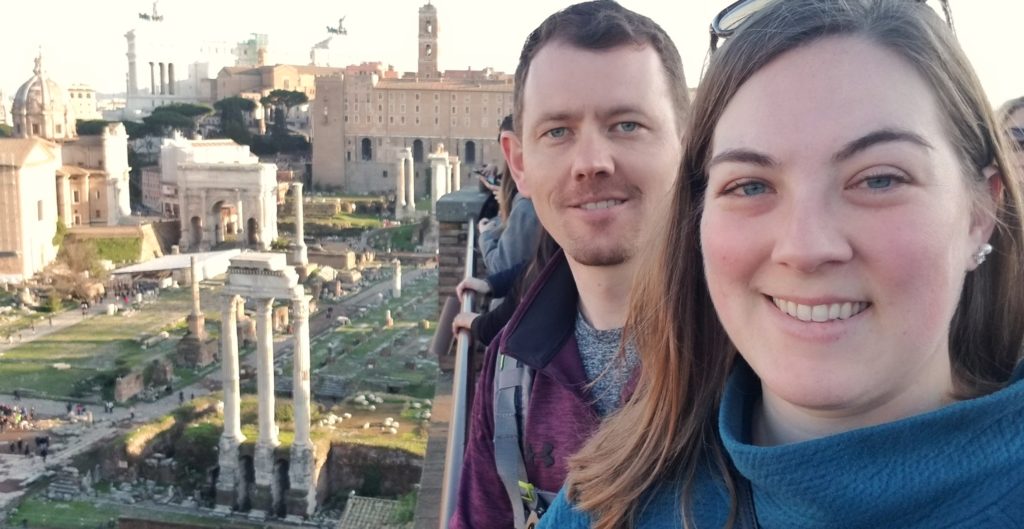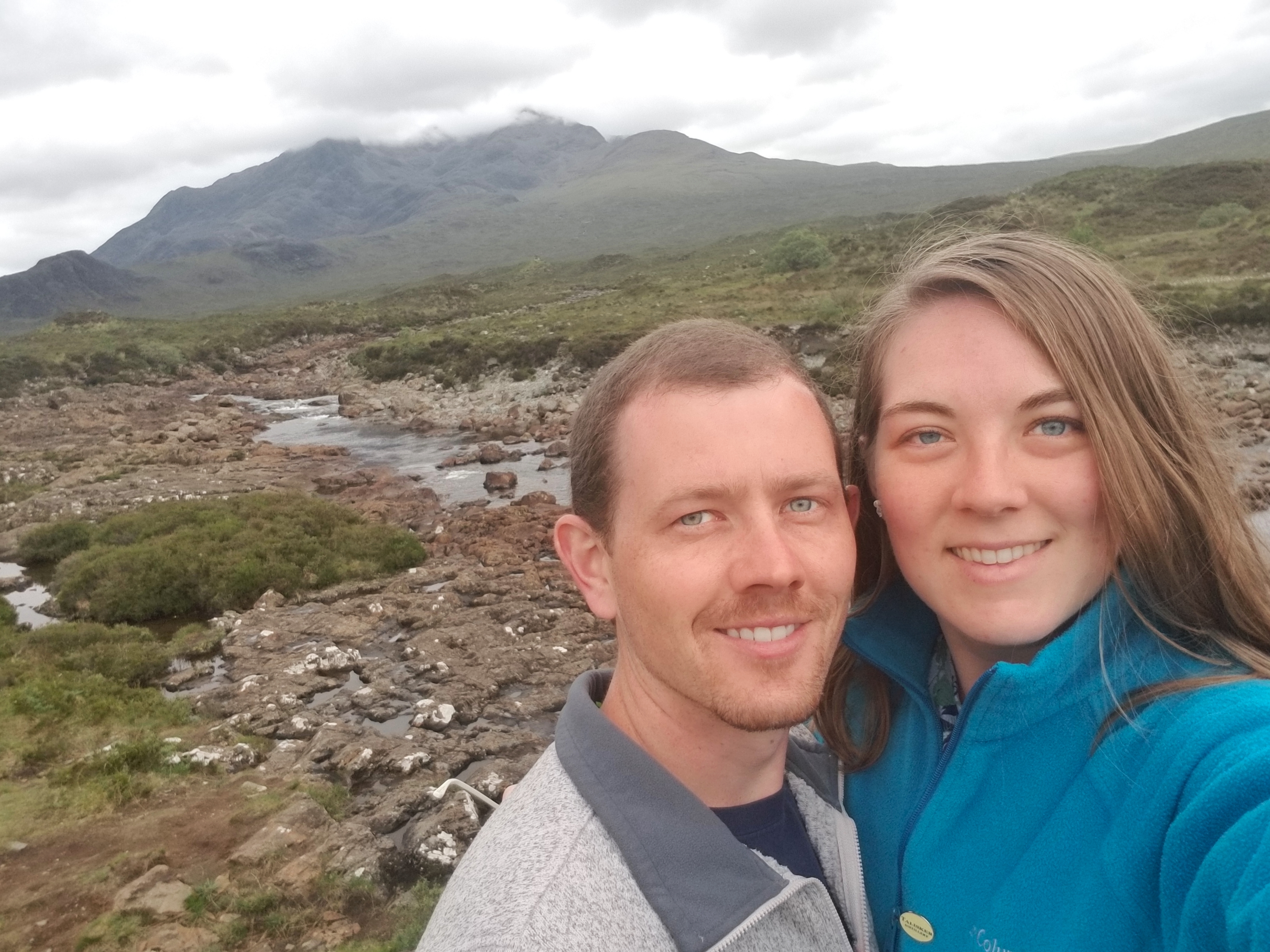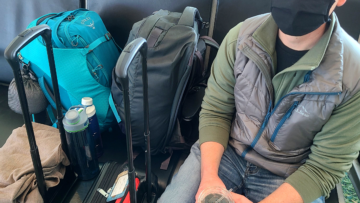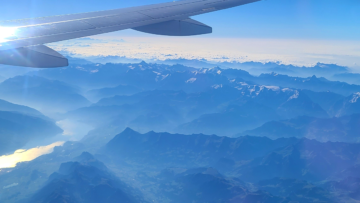If you haven’t picked up on this by now, we love travelling. Like, a lot. We also like to encourage folks to get out and see the world, however much of it they’re comfortable with. And while we don’t usually talk about this explicitly, we like to travel safely. For the most part, that means having peace of mind before and during our travels, and that can go a long way to making your trip more enjoyable.

Before going anywhere, we visit the US State Department website. Why? Well, because it gives you lots of good information about travel advisories, visas – if they’re required – for the countries you plan to visit, how to get your passport if you don’t already have one, trusted traveler programs (like Pre-Check, Global Entry and Clear) and other information. You can also sign up for the Smart Traveler Enrollment Program (STEP) that gives you current safety and security information about your travel destinations. This will also add you to the contact list they’ll use in case anything happens during your trip, like ‘political shenanigans’ that might mean you should leave the country…quickly.
It might also be helpful to know where the closest US Embassy and/or Consulate is. The State Department has a website for this. Let’s be honest, you’ll probably never need to know or use this information, at least we certainly hope that’s the case. Still, you never know, and better to have it and not need it than the opposite. For example, maybe you’re walking around Rome admiring the countless statues, obelisks, and other sights while dreaming about the amazing pasta dish you’ll have for dinner (trust us, all of these are real) and a pick pocket makes you their target. Before you know it, your passport is gone and you have no money. Are there ways to prevent this beforehand (like keeping it in the safe in your hotel room)? Sure, but that’s not helpful after your passport is gone. What is helpful? Knowing where the US Embassy is so they can help you resolve the situation. Oh, and while you’re at it, make sure you familiarize yourself with what the US Embassy, and the State Department in general, can and cannot do for you while abroad. Especially if your travels will take you to some of the more colorful parts of the world, this is good information to know.
These days we also frequently visit the CDC’s Traveler’s Health website for additional information. Right now, you can find information about COVID-19-related travel advisories and their frequent changes, but there’s information about other health-related advisories, too. They’ll also tell you about common diseases and the vaccines or medications you can get to deal with them. Plus, part of their website has general Traveler Advice that can come in handy. For example, when Jason travels to China, he takes this information to a doctor’s appointment to talk through what he needs to take with him in case he gets sick. It’s also a great idea to check your destination country’s government’s international travel pages such as this one for Scotland. We may not have any restrictions traveling from the US, but the destination country may have some against us that we need to be aware of.
This might seem obvious, but it’s also good practice to leave a copy of your itinerary and contact information with family and/or friends. Again, they’ll probably never need it unless they’re living vicariously through you and want to follow along. But, just in case something happens, they’ll know where you should be, when you should be there, and where you’re coming from. That can be helpful if someone needs to find you. By the same token, make sure you have their contact information, just in case someone needs to contact people back home for you.
Last thing: before heading out, make sure you do a quick Google search to see where local hospitals and police departments are in the areas you’re planning to visit. Can you jump in a cab and ask the driver to take you to the hospital? Maybe, if they speak English. Is it a good idea to have a general idea of where that is so you know if you’re going in the right direction? Also, yes. Always know where you are.
If you’re using a travel agent to book your trip, you should be able to ask them for the above information, and some will even provide it to you without asking. If you’re booking your own travel, then finding this information is up to you. Even if you’re using a travel agent, we’d still encourage you to do the above searches just so you’re informed. In all, you can probably take care of most of the above in about an hour and, should you ever need any of this information, you’ll be thankful you did the research.

This is where Tasha pipes up. Ladies, I hate to admit it and it’s a bit unfair, but we have to pay a little bit more attention than our male counterparts when traveling and just generally in life. You can never be too aware. Never. These tips are true for the fellas as well, I just know many of these are forefront in my mind as a female and less-so in Jason’s (he’s a big picture guy, I’m a details gal), so I’m going to highlight 12 safety tips that are obvious to me and that I try to keep top of mind.
- Always be aware of your surroundings. Look at a map and memorize it. If you get lost, don’t stand on the street looking lost. Pop into a shop or café and get your bearings before you walk back out with confidence, head up, shoulders back. Walk with purpose. Use your peripherals.
- Put the address of your hotel in your phone, snap a photo of the outside or grab one of their business cards at check-in. If you don’t speak the language, it’s very helpful for cab drivers.
- Zip your purse closed and don’t carry all of your money at once or in one place on you. If you’re on the move and must carry it all, break it up – some in your purse, pocket, backpack, shoe, roller bag, etc. I highly recommend a slash-proof crossbody with RFID to blend in more-so than a backpack.
- Know where you are. Are there neighborhoods you should be avoiding completely or only go into with a male or a partner? In many parts of the world, being a woman alone is dangerous. There’s safety in numbers, but not if you’re all in danger. When in doubt, ask your hotel staff.
- Don’t drink too much alcohol. Drink slowly, eat before/during, and chase each drink with a glass of water. Only take drinks from the bartender or your travel companion and never leave your glass unattended.
- Don’t trust strangers too quickly. Yes, there are wonderful people in the world, but there are also plenty who are not so great. Human trafficking is very real.
- Can you walk down the street after dark safely? Should you take a cab instead? If you have to go alone, tell someone you know where you are and where you’re going. And if you do take the cab, keep your bag with you so you can get out quickly if needed. Uber or Lyft are safer than a cab because of the app tracking technology and never physically exchanging money. Spend the extra money to stay safe.
- Don’t bring your good jewelry. Stick to a couple staple pieces that will go with everything. Nothing flashy. I usually take a set of silver earrings and necklace and a set of gold. I typically wear my wedding ring but will spin the stones to the inside of my hand if I feel I need to.
- I don’t personally carry pepper spray, but I know lots of women that do (but check the guidelines if you’re flying somewhere). In some countries pepper spray is considered a concealed weapon (do your research), so a mini can of hairspray is a good replacement. That hurts too (have you ever accidently sprayed yourself in the eye? Owie!)! Knowing a few quick self-defense maneuvers can go a long way as well.
- Dress nicely to blend in. Leave your branded t-shirts, shorts, distressed denim and flip-flops at home. Nothing pegs you for a tourist more than our casual American style.
- When you check-in to a hotel, inspect your room immediately. Look in the shower, under the bed, in the closet, behind the curtains and anywhere else a person could be hiding – ESPECIALLY if you are alone. Also try to avoid staying on the ground floor as they’re more susceptible to break-ins. Keep your door locked and bolted, never prop it open! We’ve had someone walk into our room in the middle of the night when we forgot the deadbolt. Terrifying! I’ll never forget the deadbolt again! Some people also travel with a doorstop to wedge under their door at night.
- Trust your gut. If something seems off, it very well could be. Just be smart.
But all that said, don’t stress, do your research before and have fun while you’re there.
That’s why we’re here in the first place. See ya out there!





